Second part of the impressions and meetings in Iraq’s capital city.
Second part of the impressions and meetings in Iraq’s capital city.
By Mohamed Sabreen, from Baghdad / Iraq
There are many stories in Baghdad, and if you put the threads together, you will draw a complete picture of what is happening in Iraq. I believe that there are many faces of Iraq, each one seeking to secure its place in the new Iraq.
However, what I witnessed was a “struggle for the future in Iraq.” Despite the stories of complaints, there is confidence in the country’s future among investors. When I mentioned ISIS, Mohammed Shia al-Sudani told us that the ordinary citizen is now the one standing strong in the face of ISIS. But let us recall some stories from Baghdad during its hot summer, and some facts on the ground that tell us where Iraq came from and where it is going.
Islands of Ignorance
It’s strange that the Arab world feels as if “deadly viruses” have infected its exhausted body. You’re shocked by the stories, the bitterness, and even the questions themselves. Why are educated people so hostile? They speak of “islands of ignorance” and an expulsion, not a “brain drain,” from Iraq.
In societies whose development is faltering, knowledge is not always a blessing. Rather, it often becomes a burden to its possessor and a source of threat to those around them. Brilliant minds are ostracized, excluded from decision-making positions, their ideas besieged, or forced to emigrate. This phenomenon is not a mere coincidence; it is the result of a social, cultural, and political structure that produces what might be called “islands of ignorance.”.
Some might ask what these arrogant speakers mean by this phenomenon. They told me that “islands of ignorance” are not geographical locations, but rather intellectually closed environments where competence is excluded, and mediocrity is rewarded. They emphasized that these are institutions, administrations, or even social networks built on loyalty, not merit, and on subservience, not criticism. In these islands, flattery becomes a means of advancement, while those who question, think, or innovate are punished. that the Arab world feels as if “deadly viruses” have infected its exhausted body. You’re shocked by the stories, the bitterness, and even the questions themselves. Why are educated people so hostile? They speak of “islands of ignorance” and an expulsion, not a “brain drain,” from Iraq.
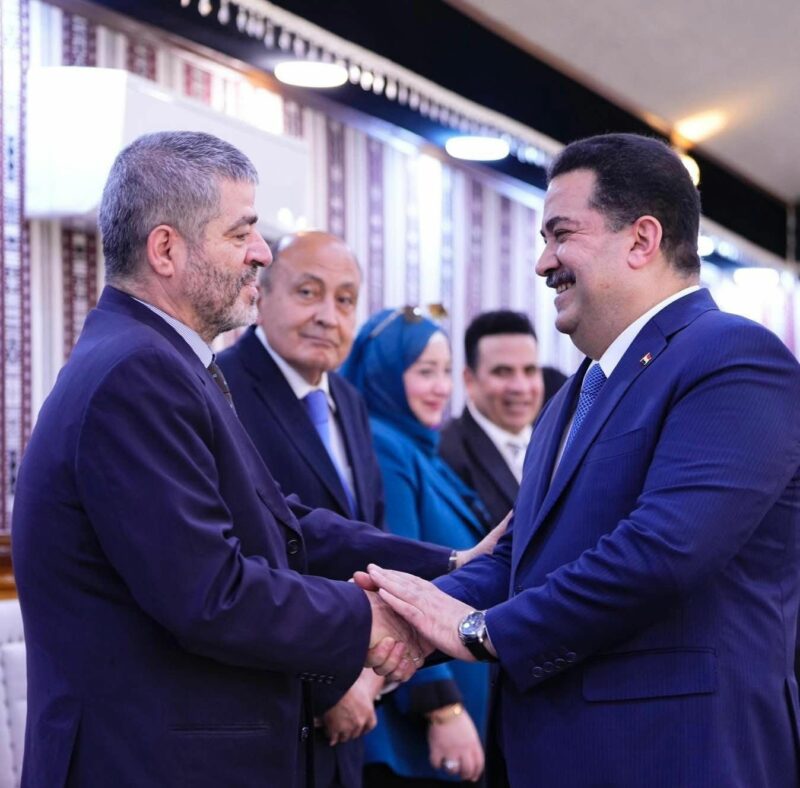
In what resembled a self-monologue, someone in the islands of ignorance said to me: Critical thinking is considered a threat, creativity is replaced by repetition, initiative is fought, servility is rewarded, and the educated are antagonized because they expose ignorance with knowledge. I left, worried. In other conversations, someone asked me, “Why are intelligent and educated people antagonized?” I wanted to know more, so I asked him why. His answer surprised me. He said, “The hostility isn’t just due to jealousy, but because their presence exposes the system’s flaws. The educated question, while the ignorant go along; they revise, while others applaud; they think, while others obey. The educated don’t accept inferiority or superstition, and this is enough to arouse the hostility of those accustomed to inactivity and ignorance.”
Now it was my turn to ask how this phenomenon occurs in Iraq. Another person answered, “In Iraq, bright minds are excluded in systematic or random ways. Some of the manifestations include the marginalization of qualified individuals in institutions, and positions are rarely granted to those who deserve them, but rather to those affiliated with a party or tribe. There is also a brain drain, as doctors, engineers, and professors leave in search of an environment that respects their minds. There is also a culture of fear of excellence. He told me that every advanced degree is met with suspicion, and every proposal is met with skepticism. He finally addressed me with the judge, pointing to the alliance between power and ignorance, and that sensitive institutions are run by narrow-minded people who do not believe in science, research, or criticism. I asked him what the solution is. He gave me a heavy prescription, saying that a country cannot rise without liberating the educated from marginalization. I asked him what was required, and he answered by saying that there must be a revolution of values, starting with education, and believing that competence is above all considerations. And administrative reform, which enables He deserves no flattery. A culture that values thought, not demonizes it.
He didn’t want to leave me before he’d poured out all the bitterness in his chest, so he said to me, “When intelligence and knowledge are opposed, ignorance is rewarded, and the practice of ignorance is strengthened. If this situation continues, the “islands of ignorance” will not be merely an exception, but a general rule. Iraq, with its history of civilization and the ink of its scholars, does not deserve to be one of these islands. Rather, it deserves to be a beacon that embraces the educated and places them in a position of decision-making, not on the margins of neglect.”
How can we rise
I bid him farewell, thinking to myself that the matter was deeper. How can we rise when the prevailing culture says, “A person’s intelligence is counted.” Another proverb is, “Be present once from your enemy, and a thousand times from your friend.” Another proverb is, “Tie the donkey where its owner wants it.” Lowbrow art came to insult knowledge and scholars and deny the existence of loyal friends. Artists and soccer stars boast that they were stupid and lazy students. The biggest disaster came when a singing star said, “We are three brothers. He and his other brother pursued art, and we succeeded and shone. As for the third who failed, he is a university professor in the United States.” Institutions say that the man who failed is a great scholar in his field, and even enjoys global appreciation.
From War Debts to Reform
Away from the state of science and scholars, and the relationship between intellectuals and power, I was missing a breath of fresh air. I went to engage in the nights of Baghdad, and a dinner at the home of an Iraqi businessman brought me together with a distinguished group of Iraqi writers, researchers, and diplomats. These friendly gatherings often provide an opportunity for calm, sometimes boisterous, dialogue. In most cases, the uproar subsides, and the evening is complete. These evening gatherings are widespread, and I have attended many of them. They often resemble private conversations. At the end of the evening, the banquet begins, which is extremely plentiful and reflects a generosity belonging to another era. Modernity no longer allows for relaxation, generosity, or delving too deeply into the subtleties of life. These evenings often witness a gentle clash between those who see everything as beautiful, and who believe nothing can be more creative than before. On the other hand, the minority group sees chronic problems and the need to address them. However, supporters of stability see stagnation—pardon me, I mean stability—as a virtue, a virtue of the state of desire.
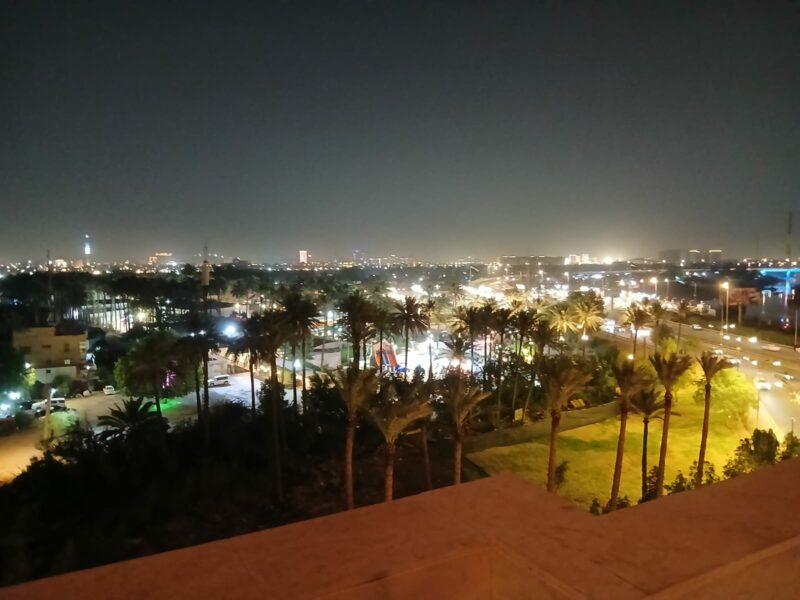
When I took my place at the table, I was introduced to the audience as a writer from the land of the Nile, and they introduced “the night’s guest,” Dr. Amer Al-Adhadh, advisor to the Prime Minister of Iraq, who had been entrusted with the burden of reforming the Iraqi economic system. I felt sorry for the man, having read about him and how qualified he was through his studies at some of America’s most prestigious universities. From the first moment, I realized from his body language and the way he spoke that he was a capable and rebellious scholar, bearing a heavy burden and facing fierce resistance. He wanted to rehabilitate a bureaucratic system that had long been slack.
Previously run by people of trust, not competence, the new era chose to appease its supporters by appointing them to the government’s bureaucracy, which resulted in 80% of the state’s general budget being spent on salaries and wages. Of course, corruption transcends systems, eras, and borders. I teased him by saying, “Sir, how can you carry $200 billion on your shoulders? Don’t you want us to carry part of it for you?” The man smiled and sighed. With the sigh, I realized the suffering of those who swim against the current.
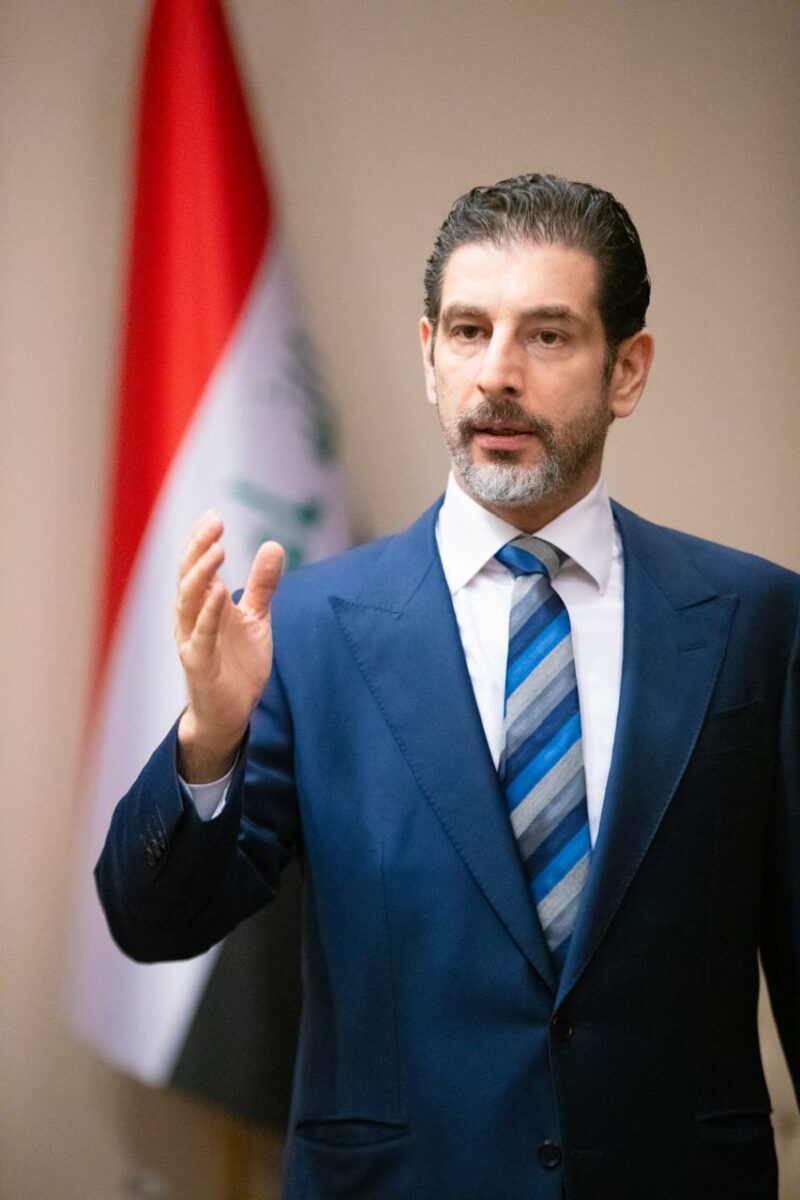
This man, Dr. Amer Al-Adhadh, is an Iraqi-American economist who works as an advisor to Iraqi Prime Minister Mohammed Shia Al-Sudani and the CEO of the government’s “Reform Management Cell.” He also served as Secretary of the Raw Materials Committee, which oversees the needs of more than 450 projects worth $200 billion. He previously worked as an advisor to the Qatari Ministry of Commerce, participated in the working group of the “United Nations Economic Commission for Europe on Public-Private Partnerships,” and conducted a quantitative analysis of famous hedge funds on Wall Street. Despite this, his work is not easy, and those present teased him. One of them went so far as to claim that not everyone who reads certain theories is fit to reform things, and that these people live in a bubble and only have bitter medicine.
Specific Answers
I intervened and asked the man to explain to us the alternative to taking “drastic steps” to remove the “belly” that had ballooned over the years. As I expected, he wasn’t an economist, and he didn’t have specific answers.
Things quickly calmed down, and the economist, the one charged with the reform process, went on to explain. Surprisingly, he brought us good news. The main headline was that Iraq was on the cusp of a comprehensive economic transformation. In the tone of someone passionate about his work, and with the understanding that he understood, he explained that when Saddam Hussein’s regime fell in 2003, Iraq was burdened with a massive foreign debt estimated at approximately $300 billion, including direct debt, war reparations, and unpaid contracts. At that time, Iraq’s GDP was estimated at only $15 billion, bringing the debt-to-GDP ratio to over 2,000%—a catastrophic situation by any standard.
Success Story
Dr. Amer says that thanks to intensive diplomatic efforts, Iraq was able to restructure its debt through the Paris Club and bilateral negotiations, resulting in the cancellation or rescheduling of most of its debt. Today, Iraq’s total remaining debt does not exceed $4 billion, and it has no obligations to the International Monetary Fund. New loans granted to Iraq are allocated solely to development projects, such as infrastructure and energy, reflecting a shift in fiscal policy toward sustainability.
A Promising Economic Opportunity
Economic expert Dr. Amer asserts that Iraq possesses assets in state-owned companies valued at more than $300 billion. By implementing the Public-Private Partnership (PPP) law, these assets can be transformed into investment projects generating an estimated $30 billion annually. This model allows the state to retain ownership of the assets, while the private sector takes over management and operation, enhancing efficiency and reducing the financial burden on the government.
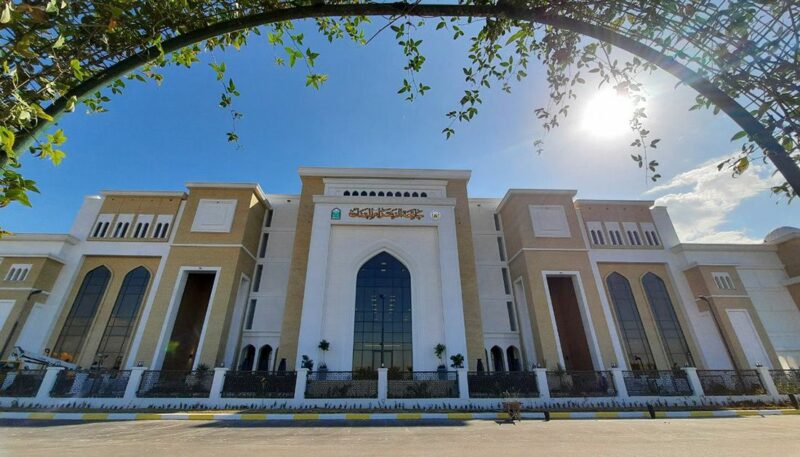
Economic Diversification
He points to a loophole in the economic system. He says that although most services in Iraq are provided for a fee, revenues are not transferred to the public treasury due to weak collection and oversight systems. If this process is effectively organized, a large portion of the economy can be transformed away from its dependence on oil revenues, enhancing financial stability and reducing vulnerability to fluctuations in global oil prices.
The Need for Specialized Leadership
The treating physician never rests on his laurels, acknowledging that the Central Bank of Iraq is one of the key pillars in achieving economic stability. However, appointing non-specialized leaders, such as lawyers or traditional bankers, could lead to ineffective monetary policies. In light of the current economic challenges, it is essential that the Central Bank be managed by specialized economists with a deep understanding of monetary policy and its tools, to ensure informed decisions that enhance currency stability and stimulate economic growth.
Currency Devaluation: A Painful but Inevitable Necessity
Dr. Amer continues his shocking insights by acknowledging that devaluing the Iraqi dinar is a politically sensitive step, but it may be necessary to improve the economy’s competitiveness. He also notes that postponing this decision could exacerbate economic problems, especially if it comes at a time when the government is less able to protect vulnerable groups. Therefore, it is best to make this decision while social support programs exist to mitigate its negative impact on citizens.
A Promising Economic Opportunity
Economic expert Dr. Amer asserts that Iraq possesses assets in state-owned companies valued at more than $300 billion. By implementing the Public-Private Partnership (PPP) law, these assets can be transformed into investment projects generating an estimated $30 billion annually. This model allows the state to retain ownership of the assets, while the private sector takes over management and operation, enhancing efficiency and reducing the financial burden on the government.
Iraq is on the cusp of an economic transformation
At the end of his talk, he offered us a glimmer of hope. He believes that after years of crises, Iraq today has a real opportunity to achieve comprehensive economic transformation. This can be achieved by settling debts, activating public-private partnerships, improving non-oil revenues, and appointing specialized economic leadership for the Central Bank. At that moment, Iraq can achieve sustainable growth and reduce its dependence on oil.
In a clear warning, Dr. Amer says that now is the best time to take these bold steps before the choices become more difficult in the future.
City of Roses
It seems that Baghdad wants to make up for lost time. During my visit and tour of Baghdad, Nisf, and Karbala, stories about Egypt and Egyptians never ceased. I felt proud and relieved when talking about the authentic Egyptian Naguib Sawiris and Engineer Hisham Talaat Moustafa.
These two topics were never forgotten, whether among politicians, the elite, or ordinary Iraqis. They brought smiles to faces with their mega projects.
More importantly, from my perspective, they “contributed to sending an urgent message that Iraq means business.” Iraqis felt they were on the right track, and that Egypt and Egyptians truly loved them.
Engineer Naguib chose the name “City of Roses” for his massive project. Located south of the Iraqi capital, Baghdad, the project spans an area of 61 million square meters and is planned to include approximately 120,000 housing units. The project also includes the construction of a huge public park spanning approximately 1,200 acres, larger than Central Park in New York, at a cost of $17 billion.
At the same time, Talaat Moustafa Group announced it is developing a global project in Baghdad with total sales valued at $17 billion. The project is planned to develop a sustainable, multi-use city in Iraq. The new project is located on an area of approximately 14 million square meters in southwest Baghdad and includes approximately 46,000 residential, commercial, and administrative units.

$60 Billion in Investments
In an unprecedented move in Iraq’s modern history, the current government has succeeded in attracting more than $60 billion in foreign and domestic investment in a short period of time. This transformation was not a coincidence or a temporary publicity stunt, but rather the result of a well-thought-out strategy based on offering ready-made projects, free land, and the Prime Minister’s rare political courage to overcome the bureaucratic legacy and complexities of Iraq’s traditional business environment.
Ready-Made Projects and Allocated Land
The primary key to Iraq’s success in attracting this volume of investment was simple yet highly effective: offering ready-made projects on free, clearly defined land. As we know, investors do not want to risk lengthy planning and property battles; rather, they seek clarity, infrastructure, and location. The government, through coordination between executive bodies and the Reform Cell, presented these projects clearly: the land was known, the planning was ready, and the location was identified. This has attracted major investors such as Egyptian billionaire Naguib Sawiris and other leading figures in real estate and industrial investment. When an investor sees a fully conceptualized project backed by the highest authority in the country, the risk ratio decreases, and the opportunity becomes more attractive.
Political Courage from Al-Sudani
What distinguishes this administration from its predecessors is the Prime Minister’s direct responsibility for providing the necessary exceptions to overcome the legal and administrative obstacles that previously prevented such investments. The bureaucratic system in Iraq is known for its complexity, duplication, and multiple decision-making sources, which often kept investors away. But this time, political will at the highest levels intervened to provide an exceptional window capable of circumventing obstructive procedures, without compromising the law, but rather by interpreting and implementing it in a manner that serves the greater interest of the state.
The New Partnership Law
This experiment, described as a “qualitative breakthrough” in the Iraqi investment environment, is no longer merely a temporary situation. It is now being codified through a new Public-Private Partnership (PPP) law. This law is based on the UNECE PPP Model Law, developed by more than 100 international experts, and adapted to the Iraqi context through extensive consultations with the public and private sectors. Investment doesn’t require a miracle, but a decision.
I return again to Dr. Amer Al-Adhadh, advisor to the Iraqi Prime Minister, and ask, “Does investment require a miracle?” He says that what happened in Iraq demonstrates that attracting investment doesn’t require miracles, but rather political will, sound planning, and a genuine partnership with the private sector. Experience confirms that a clear project and a supportive legal environment, along with a commitment from the head of the executive authority, are sufficient to make Iraq an attractive destination for capital rather than one that repels it.
A Story from Iraq
It remains that Iraq, despite the complaints, is rising again, and an inspiring success story has begun. At a time when countries in the region are competing to attract investment, Iraq is credited with entering this race through the cracks, not only with traditional temptations, but with a bold and transparent approach that will open the door to a new era of sustainable economic development. It seems that Iraq’s stories build on each other. Success brings calm and hope, and hope brings belonging and action. If creative and competent individuals join the battle of the future, the birds of darkness will likely depart, and the ignorant and superstitious will disappear. Do you think Iraq will succeed in the struggle for the future? It seems that Iraq PM Al-Sudani wins the ‘Struggle for the Future’ in Iraq.
Cover picture Iraqi PM Al Sudani with the Egyptian billionaire Naguib Sawiris.







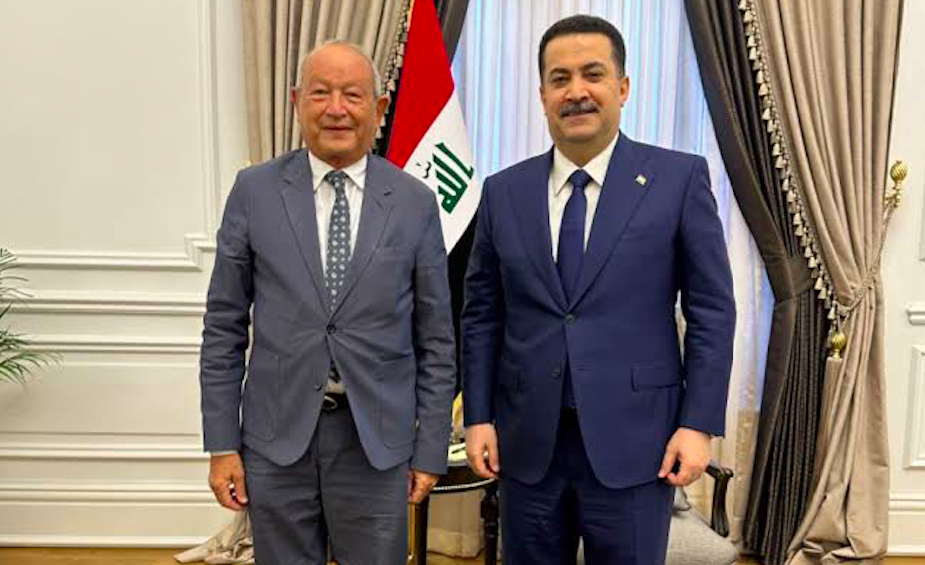









Leave a Reply